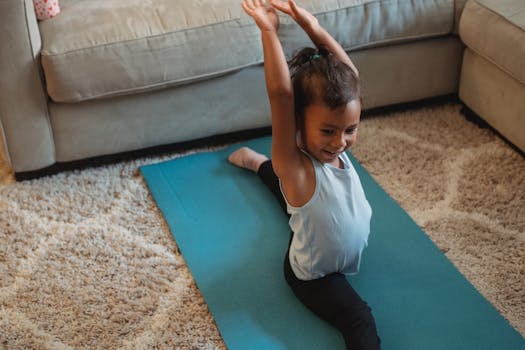Embracing a Balanced Lifestyle: Your Guide to Wellness and Fulfillment
Takeaways: Living a balanced lifestyle involves a harmonious blend of physical health, mental well-being, and emotional stability. This article provides practical tips on nutrition, exercise, mindfulness, and social connections to help you create a fulfilling life.
Understanding Lifestyle Balance

The Importance of Physical Health
Physical health is foundational to a balanced lifestyle. It affects how you feel, think, and interact with others. Engaging in regular physical activity and maintaining a nutritious diet are essential components.
- Regular Exercise: Incorporating exercise into your daily routine can improve your mood, boost energy levels, and enhance overall health.
- Nutrition: A balanced diet rich in fruits, vegetables, whole grains, and lean proteins supports your body and mind.
- Hydration: Staying hydrated is crucial for physical performance and cognitive function.
The Role of Mental Well-Being
Mental well-being is just as important as physical health. It involves managing stress, cultivating a positive mindset, and fostering emotional resilience.
- Mindfulness and Meditation: Practicing mindfulness can help reduce stress and improve focus.
- Setting Goals: Having clear, achievable goals can provide direction and motivation.
- Seeking Help: Don’t hesitate to reach out for professional support when needed.
Building Social Connections
Human beings are inherently social creatures. Nurturing relationships and building a support network can significantly enhance your quality of life.
- Quality Over Quantity: Focus on building deep, meaningful relationships rather than a large circle of acquaintances.
- Community Involvement: Engage in community activities to foster connections and a sense of belonging.
- Communication: Open and honest communication strengthens relationships.
Practical Tips for a Balanced Lifestyle
Now that we understand the components of a balanced lifestyle, let’s explore practical tips that can help you incorporate these elements into your daily routine.
Creating a Daily Routine
Establishing a daily routine can provide structure and stability, making it easier to prioritize your health and well-being.
- Morning Rituals: Start your day with a healthy breakfast and a short workout or meditation session.
- Time Management: Use tools like planners or apps to organize your tasks effectively.
- Night Routine: Wind down with relaxing activities, such as reading or journaling, to promote better sleep.
Incorporating Healthy Habits
Healthy habits are crucial for maintaining a balanced lifestyle. Here are some habits worth incorporating:
- Meal Prep: Planning your meals in advance can help you make healthier choices and save time.
- Regular Exercise: Aim for at least 30 minutes of physical activity most days of the week.
- Digital Detox: Set aside time to unplug from technology and engage in offline activities.
Practicing Mindfulness
Mindfulness can significantly enhance your quality of life. Here are some ways to practice mindfulness:
- Mindful Eating: Pay attention to your food, savoring each bite and recognizing hunger cues.
- Breathing Exercises: Incorporate deep breathing exercises into your routine to reduce stress.
- Gratitude Journaling: Write down things you are grateful for to cultivate a positive mindset.
Overcoming Challenges to Balance

Time Constraints
In a busy world, finding time for self-care can be challenging. However, prioritizing your health is essential.
- Time Blocking: Allocate specific times in your schedule for exercise, meal prep, and relaxation.
- Multitasking: Combine activities, such as listening to audiobooks while exercising.
- Say No: Learn to decline commitments that do not serve your well-being.
Stress and Anxiety
Stress and anxiety are common obstacles to maintaining a balanced lifestyle. Here are some strategies to cope:
- Mindfulness Practices: Engage in regular mindfulness or meditation exercises.
- Physical Activity: Use exercise as a tool for managing stress and anxiety.
- Professional Support: Seek therapy or counseling if stress becomes overwhelming.
Maintaining Motivation
Staying motivated can be tough, especially when facing setbacks. Here are tips to keep your motivation high:
- Set Realistic Goals: Break larger goals into smaller, achievable steps.
- Celebrate Progress: Acknowledge and celebrate your accomplishments, no matter how small.
- Find a Support System: Surround yourself with supportive friends or join groups with similar goals.
Conclusion

FAQs
What are the key components of a balanced lifestyle?

How can I maintain my motivation for a balanced lifestyle?
Set realistic goals, celebrate progress, and find a supportive community to help keep you motivated.
What should I do if I feel overwhelmed by stress?
Incorporate mindfulness practices, engage in physical activity, and seek professional support if necessary.
Sources
- Healthline – What Is a Balanced Diet?
- Psychology Today – Mindfulness
- Forbes – How to Create Healthy Habits That Stick






